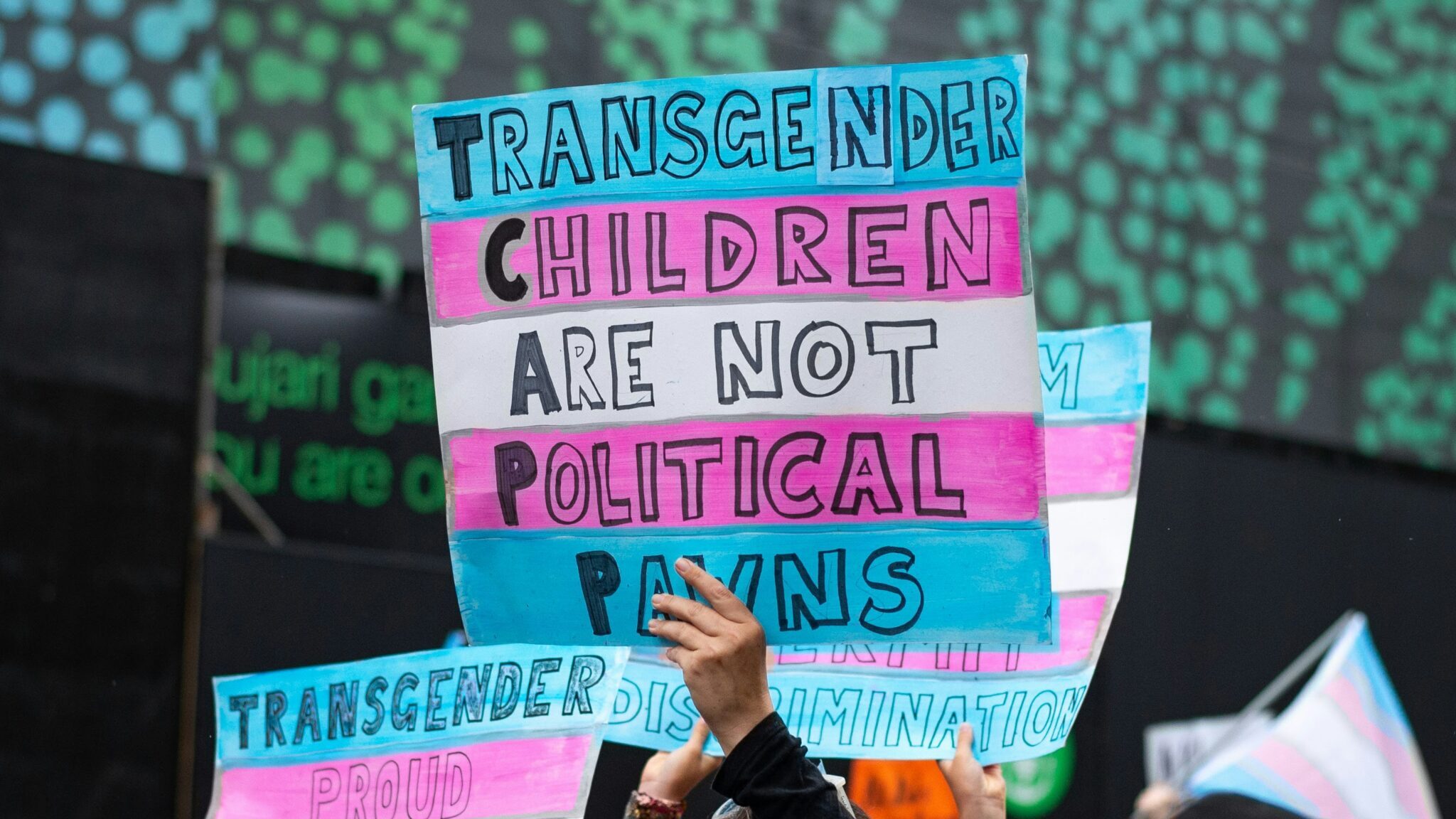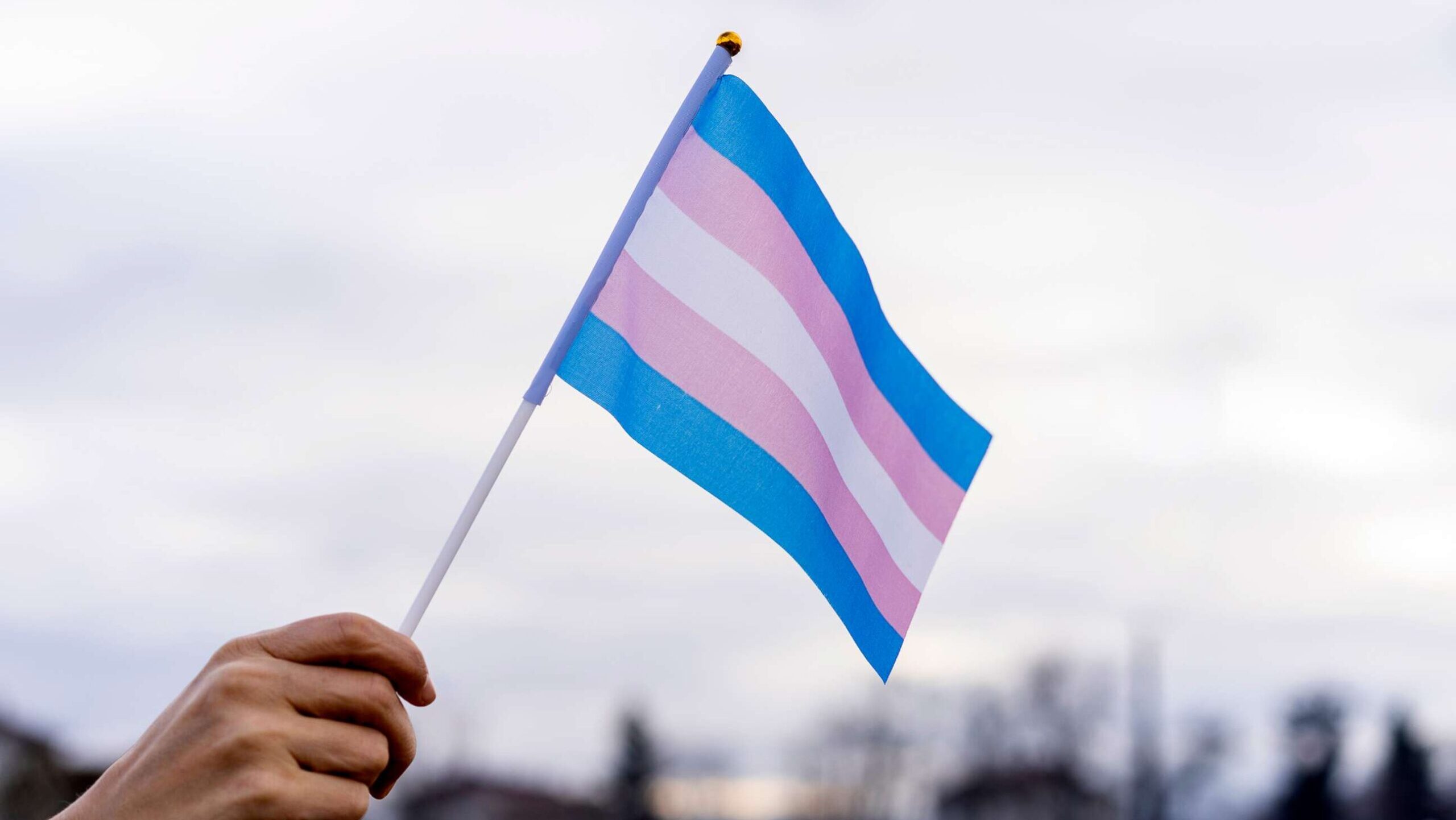Opinion By Eliana Turan,
Director of Development at The LGBT Community Center of Greater Cleveland.
This article was first published at Cleveland Scene com “Op-Ed: Ohio’s Proposed Anti-Trans Sports Bills Are Dangerous State-Sanctioned Bigotry.”
On March 2, 2020, I was, invited by one of my favorite morning shows, The Sound of Ideas, to discuss HB527, which would have effectively barred trans students in Ohio from competing as their true selves. Joining as guests in favor of the bill were Beth Stelzer and Jena Powell. The former founded an organization she hyperbolically named “Save Women’s Sports.” The latter is an Ohio House representative.
Anticipating a civil conversation, I was stunned by the language of my co-guests, which I personally felt was aggressive, sexist, and transphobic. During the subsequent debate, I noted that Save Women’s Sports was collaborating with the Alliance Defending Freedom (ADF), which the Southern Poverty Law Center has listed as an anti-LGBTQ+ hate group. I was so noticeably shaken from the exchange that show host Mike McIntyre even called me afterward to make sure I was ok (a gesture from the veteran journalist that I appreciated). After the radio program, Save Women’s Sports posted video of me from the show onto their social media, where my digital effigy may now be trolled into Internet oblivion.
HB527 failed to advance forward in the Statehouse last year, its supporters blaming the onset of COVID-19 as its reason for stoppage. That original bill was not truly dead, however. In 2021, it rose like a zombie to become the “Save Women’s Sports Act,” which would prevent trans female students from competing on female teams in Ohio’s schools and colleges, if passed. This time, the anti-trans Ohio bill is joined with a tidal wave of similar sports bans in other states.
In this way, the recent onslaught of sports bans mirrors similar transphobic legislative assaults of recent history, such as the bathroom bills. Both campaigns rely heavily on the unfounded and transphobic paradigm that inclusion of trans people into public life will preclude and necessitate the dissolution of public life itself. This, despite the trans community making up only 0.6% of the U.S. population and having peacefully co-habited with our cisgender neighbors since the beginning of humankind.
As a trans woman and advocate in the LGBTQ+ community, I feel that the dual anti-trans sports bills in the Ohio Statehouse would be extremely harmful if passed. These bills would hurt trans women and girls by invalidating our identities, normalize and promote transphobic bullying, and effectively prevent trans youth from partaking in the natural human right of athletic participation.
Trans people would lose opportunities and face greater dangers. Four out of 10 trans people already attempt suicide at some point in our lives. Half of us will be sexually assaulted. Trans people often face rejection by peers, authorities figures, and even loved ones. We are at heightened risk for many health perils including addiction, mental health struggles, homelessness, incarceration, HIV/AIDS, and COVID-19. Worse yet, Northeast Ohio is an epicenter of transphobic violence. Does a “public safety” bill really make sense when it targets our most vulnerable?
If we are going to talk about saving women and girls, let’s save all women and girls, trans females included. Athletic participation keeps kids safe by affording comradery, role models, friendships, and protections from life’s many dangers. Likewise, trans athletes strengthen their teams and act as positive examples for those around them – a valuable thing for kids who often feel unwanted.
Supporters of these bills claim they are meant to protect opportunities for cisgender women and girls. But that is not true, either. The Ohio High School Athletics Association (OHSAA) has affirmed that no evidence exists of trans athletes disrupting opportunities for their cisgender teammates in the state. Moreover, OHSAA’s governance framework that manages trans inclusion in sports is based on medical and scientific research, coupled with legal and human rights. In contrast, the proposed anti-trans bills are rooted in fear, prejudice, and ignorance.
Worse yet, these proposed sports bans actually hurt female athletes across the board, cis and trans alike. Supporters of these bills claim that female athletes are inherently inferior to male athletes. As an intersectional feminist, I find this proposition highly insulting. I believe that women can do anything just as well as men can. Invalidating female athletes undermines the broader push for female equality in sports. This is why Billie Jean King, Megan Rapinoe, and Candace Parker, and nearly 200 other athletes have come forward in support of trans inclusion of athletics.
By claiming that female athletes aren’t as good as our male equivalents, proponents of these sports bans reinforce societal misogyny that robs women’s teams and leagues of needed resources, coaching, scholarships, compensation, and recognition. But it doesn’t stop there. Young women and girls who internalize such messaging will be less likely to pursue opportunities in STEM, law, public service, finance, and other male-dominated fields. Is it is any surprise then that these sports bans are being pushed by lobby groups with long histories of keeping women oppressed?
Female athletes have been unjustly maligned as less than compared to male athletes. Unparalleled champions such as Serena and Venus Williams, Candace Parker, Jackie Joyner-Kersee, and many others will never be seen, valued, or remembered for their true magnificence due to gendered sports discrimination and collective misogynistic beliefs.
A cynical gamble by the supporters of the proposed anti-trans sports bills is that they can effectively sell such ongoing misogynistic oppression in sports as existing toward the protection of cis women. As such, they frequently quote statistical data underscoring performance disparities between female and male athletes. Lost in their analysis, however, is the influence of the gross imbalances of resources and prestige allocated toward boy’s and men’s teams and leagues compared to their female counterparts, coupled with the influence of widespread cultural expectation that boys enter into sports and girls do not. Ignoring such factors, the proponents of the anti-trans sports bans simply conclude that females are inherently inferior in athletics to males, and that a full blanket ban on trans girls and women – whom they wrongly equate as being biologically identical to cis boys and men – is now needed urgently, despite long-running positive relations between cis and trans female athletes statewide.
Across the country, cisgender people are now debating whether trans people should enjoy the same inalienable rights that they do. To my cis neighbors, I would implore you to consider the long-view of this crossroads. America has a long and shameful history of sports discrimination against oppressed communities. Black Americans were barred from competing against white athletes during the shameful Jim Crow era. Indeed, the struggle for racial desegregation in the U.S. played out in many of the same venues the fight for trans inclusion plays out in today: bathrooms, locker rooms, schools, military service, etc. Does Ohio really want to fall on the wrong side of a 21st Century civil rights issue?
Even now, in the absence of formal homophobic discrimination, very few LGBTQ+ athletes compete out of the closet at the collegiate and professional level. Many likely fear losing scholarships or promotional sponsorships if they are outed. With so much more work to do toward LGBTQ+ equality in sports, what effect would the formalized barring of trans athletes from public life have on the broader rainbow? Anti-LGBTQ+ groups like the ADF likely gamble that a strategic wedge issue like trans inclusion in sports may pit cis and trans women against one another, thus weakening the struggle for gender equality, while simultaneously striking a major blow to the LGBTQ+ empowerment movement.
And what are the likely consequences if Ohio chooses the wrong side of history? To be sure, they would be steep. The NCAA has already suggested that it may not hold events in states that pass such bans. Is Ohio really in a financial position to needlessly imperil such opportunities? Perhaps Ohio’s many small-government Republicans and Libertarians should consider their own messaging about how draconian government can drive businesses away.
But that is not likely all. If we are to learn from the failed bathroom bill campaigns of yesteryear, more commercial and economic interests will likely step forward to affirm their stated policies toward diversity and inclusion. In March 2016, North Carolina initiated a statewide bathroom bill, thus setting off a flurry of transphobic copycat bills across the U.S. For its role as the flashpoint, North Carolina may have lost an estimated $3.76 billion in diverted economic activity. Even a fraction of such losses could thwart Ohio’s fragile recovery from COVID-19 and prolong unemployment for untold numbers of our neighbors. As of this writing, 19,428 Ohioans have died of the disease. Shouldn’t this be the primary concern of our lawmakers, alongside putting people back to work?
But beyond our state’s immediate needs, the issue of trans inclusion in Ohio’s sports teams bears implications for generations to come. As we emerge from the seclusion of COVID-19 lockdown and re-enter the world, we will find a world quickly transformed by the forces of innovation and change. Ohio lost the last innovation wave, and we desperately need to win the next for our state and region to remain relevant. That innovation will come largely from a new generation of thinkers and entrepreneurs, a new generation with vastly different attitudes and understandings toward gender, sexuality, biology, and identity. Recently, Governor DeWine announced that “he wants to spend $50 million on a marketing campaign to convince East Coast and West Coast residents to live, work and spend their money in Ohio.” But will Ohio likely attract such talent by openly embracing state-sanctioned bigotry?
Our future is ours to decide, Ohio.
The post The Anti-Trans Sports Bill Redux: You Decide Ohio appeared first on Planet Trans.




